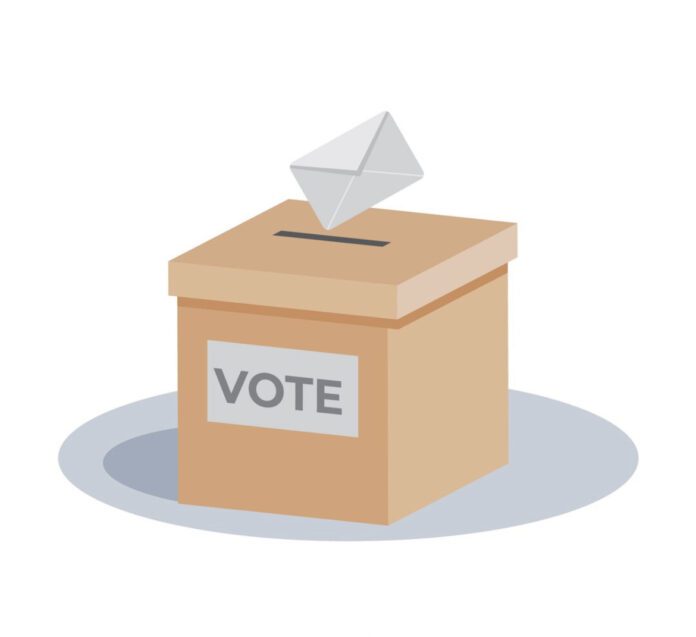
Kant’s Categorical Imperative applied to voting
Disclaimer:
All articles published within this section of The Cor Chronicle are the opinions of the respective authors and do not necessarily reflect the opinions of The Cor Chronicle.
The time has come. Did you drop off your ballot for the 2023 election? The deadline was days ago, and we all know who won by now.
The big election is a year away. Yet several states still used this November for special elections, and some of us may have voted for some ballot measure, school board candidate or state referendum. More likely, many of us received a pamphlet or email reminding us to register, which we promptly ignored.
This is not to jab at those who did so. In fact, if there’s one voting issue that the majority of modern Americans can agree on, it’s that voting isn’t worth their time — according to Pew Research, the 2022 midterm elections had an average turnout of only 46%, which was a record high in decades.
Many have spent little to no time considering the uncomfortable political question of which democratic initiative or leader we wish to inflict upon the polis. A much lower percentage of college-age citizens actually vote compared to other age groups.
But with the imminent decision of party primaries for the 2024 election, there is a dangerous element to the political apathy so common amongst modern Americans.
Voting is genuinely important in our democratic society. The Dobbs decision that rescinded Roe v. Wade was only possible because the Supreme Court justices behind it were put in place by a Republican administration, which was only in power because it was elected.
Foreign policy decisions, fiscal policy and economic initiatives may seem far too high-level and boring to be worth the time of investigating, but they are the largescale variables that determine important aspects of day-to-day realities like utility costs, military deployment of loved ones and the price of bread. Such things are very real for the average person and these policies directly stem from how individuals vote.
A tempting mentality can arise when one is confronted with both the frustrating complexity of politics and the importance it has for one’s life: the “my vote’s just a drop in the bucket” attitude.
Why bother voting when elections are won by margins of hundreds of thousands of votes? Why should I spend my time and effort to make a prudent, carefully considered political decision if the final outcome is statistically independent from the influence of my single, lonely vote?
Such a thought allows me to simultaneously abstain from researching the best political choice while commenting on public issues without hypocrisy. But while this mindset allows one to criticize bad political decisions without getting involved, it also allows for true political evil to flourish if adopted by good people.
Edmund Burke wrote, “When bad men combine, the good must associate; else they will fall, one by one, an unpitied sacrifice in a contemptible struggle.” Though Burke was writing in 18th century Britain, the moral of his thought applies to modern American democracy.
Every prudently considered vote by a conscientious citizen is a bulwark against the tyranny of both despots and the majority. Every vote withheld by such a voter is one more opportunity for bad actors to leverage their power.
Perhaps you agree that good people ought to vote; but you will not vote yourself. I ask you to consider the Categorical Imperative of Kant: treat the law of action for yourself as the law of action for all.
Applied to voting, if you think you need not vote, you are claiming through your action that all other people with your values need not vote either. If this occurs, then your values are sure to not be represented on the political stage, because you assumed they wouldn’t be.
Therefore, you should vote, not necessarily because you think your single vote will be significant, but because you believe everyone else with your values should also vote and thereby have a significant impact.
This conclusion can also be had by the Prisoner’s Dilemma. Without knowing how other people will vote, you are faced with the choice to expend effort yourself to do research and vote or to do nothing and save yourself some time. But if everyone in your position does nothing, the final outcome is worse for everyone involved — the candidate you would have opposed is guaranteed to win.
The solution is to choose to do research and vote for your values anyway, despite the risk, and to try to spread this mentality to others so that the ideal outcome is reached. Though you cannot speak to every like-minded voter to ensure cooperation, nevertheless you ought to choose to cooperate in the hope that they cooperate as well. This mentality of blind faith, despite the discomfort, is actually the most rational, because the benefit outweighs the cost, and because without it, the bad outcome is guaranteed for all.
Perhaps dull political philosophy is not enough to convince you to do your research and vote, but I hope that the good results of voting well and the devastating results of abstaining are convincing.